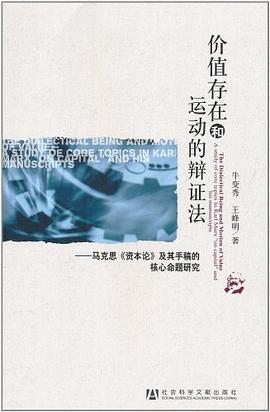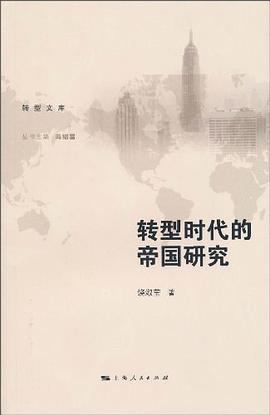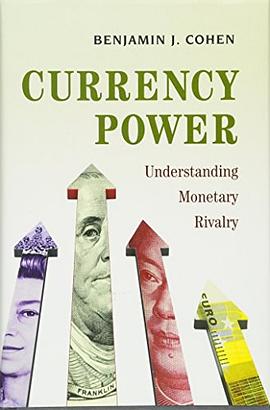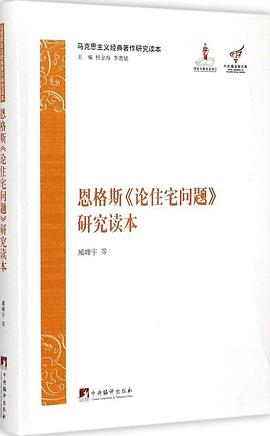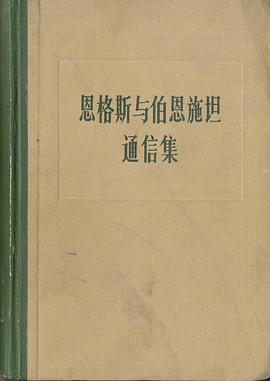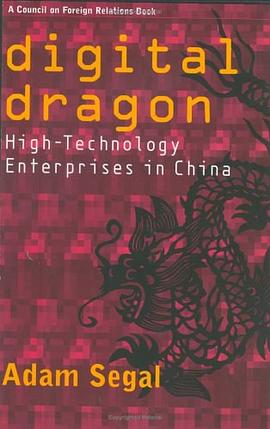

具体描述
During the economic reforms of the last twenty years, China adopted a wide array of policies designed to raise its technological capability and foster industrial growth. Ideologically, the government would not promote private-ownership firms and instead created a hybrid concept, that of "nongovernmental enterprises" or minying qiye. Adam Segal examines the minying experience, particularly in high technology, in four key regions: Beijing, Shanghai, Xi'an, and Guangzhou.
Minying enterprises have been neither clear successes nor abject failures, Segal finds. Instead, outcomes varied: though efforts to create a core of innovative high-tech firms succeeded in Beijing, minying enterprises elsewhere have languished. He points to variations in local implementation of government policies on investment, property-rights regulation, and government supervision as a key to the different outcomes. He explains these peculiarities of implementation by putting official decisions within their local contexts. Extending his analysis, he compares the experience of creating technology enterprises in China with those of Korea (the chaebol system) and Taiwan (enterprise groups).
Based on interviews with entrepreneurs and local government officials, as well as numerous published primary sources, Digital Dragon is the first detailed look at a major Chinese institutional experiment and at high-tech endeavors in China. Can China become a true global economic power? The evolution of the high- technologies sector will determine, Segal says, whether China will become a modern economy or simply a large one.
作者简介
目录信息
2. Local Governments and Technological Innovation
3. Beijing: Creating China’s Silicon Valley
4. Shanghai: Small Enterprises in a Big Enterprise Town
5. Nongovernmental Enterprises in Guangzhou and Xi’an
6. Technology and China’s Future
· · · · · · (收起)
读后感
评分
评分
评分
评分
用户评价
对我而言,这本书最引人入胜之处在于它对复杂人性边界的探讨,它毫不避讳地揭示了在极端压力之下,所谓的道德准则会如何被扭曲或重塑。书中没有绝对的善与恶,更多的是介于两者之间的灰色地带,而主角们所做的每一个选择,似乎都伴随着某种沉重的代价。我特别喜欢作者处理冲突的方式——冲突往往不是简单的正邪对立,而是源于不同立场、不同信念之间的不可调和,充满了悲剧性的必然色彩。这使得阅读体验变得非常富有思辨性。我常常在读完一个场景后,会忍不住停下来,在脑海中模拟自己处于相同境地会作何反应,而答案往往是模糊不清的。这本书成功地挑战了读者对于“正确”的既有认知,迫使我们去重新审视那些我们习以为常的价值观。它不是在提供简单的答案,而是在不断地抛出更深刻、更尖锐的问题,这种智力上的刺激感,是我在其他同类作品中很少能找到的。
评分这本书的结构布局堪称精妙,它如同一个多面体水晶,从不同的角度审视,都能发现新的切面和光影。我欣赏作者在宏大背景叙事和个体命运描写之间那种游刃有余的切换能力。一方面,故事构建了一个庞大且逻辑自洽的世界观,其中的设定、历史渊源和潜在的冲突都被铺陈得井井有条,让人感觉这不是凭空捏造,而是基于某种严谨的推演。但另一方面,作者从未让这些宏大的设定压垮了鲜活的人物。相反,那些身处巨大历史洪流中的小人物的挣扎、希望与幻灭,被刻画得入木三分。读到某些章节时,我甚至会产生一种强烈的代入感,仿佛自己就是那个身不由己,却又努力想抓住一线生机的角色。这种兼顾“大格局”与“微观情感”的叙事策略,让整个故事的张力始终维持在一个高水平线上,读起来酣畅淋漓,绝无拖沓之感。每一个章节的收尾,都仿佛是为下一段高潮蓄力的完美休止符。
评分这本书的节奏控制和信息释放,简直是一门教科书级别的示范。作者非常懂得如何利用“留白”来营造紧张感和悬念,使得阅读过程充满了探寻的乐趣。它没有一开始就将所有底牌亮出来,而是通过散落在各个角落的线索、人物间不经意的对话,甚至是场景中的某个不起眼的道具,来逐步构建起一个庞大且精密的拼图。我常常需要像侦探一样,将前面看过的零散片段串联起来,去推测幕后黑手或者事件的真正动机。这种主动参与叙事的体验,让阅读不再是被动的接受信息,而变成了一种积极的解谜过程。更妙的是,当所有谜团最终揭开时,那种豁然开朗的满足感是无与伦比的,你会发现作者早已在前面的章节里留下了所有必要的伏笔,只是你当时没有能力去识别它们。这种前后呼应、环环相扣的严密逻辑,充分体现了作者在创作之初就对整个故事的蓝图有着清晰且不可动摇的掌控力。
评分我发现这本书的语言风格极其讲究,它不是那种一味追求华丽辞藻堆砌的文字迷宫,而更像是一把经过千锤百炼的精钢利刃,每一次挥舞都直指核心,干净利落却又蕴含着惊人的爆发力。作者在描绘环境和人物心理时,展现出一种近乎冷酷的客观性,但这种“冷”反而凸显了故事内核的炙热与残酷。例如,在描述主角面对重大抉择时的内心挣扎时,作者没有使用大量冗长的内心独白来解释,而是通过一系列极具象征意义的外部动作和场景的细微变化来烘托,这种“少即是多”的表达方式,极大地激发了读者自身的想象力和共情能力。我得承认,阅读过程中,我好几次不得不停下来,并非因为内容晦涩,而是因为那些精妙的措辞和布局,迫使我必须回味再三,去细细品味其中蕴含的多层含义。这本书的对话部分也处理得非常高明,人物的口吻各有千秋,完全符合他们各自的背景和立场,听起来真实可信,没有一句多余的废话,每一个回合都像高手过招,暗流涌动。
评分这本书的封面设计简直是视觉盛宴,那种深邃的蓝色调混合着跳跃的金色光芒,让人一眼就能感受到某种神秘而又充满力量的氛围。我尤其喜欢封面上那种古老图腾与未来科技感线条的巧妙结合,仿佛在低语着一个跨越时空的宏大叙事。拿到手里的时候,纸张的质感也出乎意料地好,厚实而带有微磨砂的触感,翻开扉页时,那种油墨散发出的淡淡清香,瞬间将我带入了一个完全沉浸式的阅读情境。坦白说,在翻开第一页之前,我内心充满了对这类题材的复杂期待——既希望它能带来新颖的视角,又担心会落入俗套的窠臼。但仅仅阅读了前几章的引子部分,我就立刻被作者那种如同老练的航海家般精准的叙事节奏所吸引住了。他似乎对如何控制信息的释放拿捏得恰到好处,总是在你最想知道“接下来会发生什么”的时候,巧妙地设置一个悬念,让你迫不及待地想翻过下一页,去探索那隐藏在文字迷雾后的真相。这种叙事技巧,绝非新手能够轻易掌握,它透露出作者对文学结构深刻的理解和打磨。
评分 评分 评分 评分 评分相关图书
本站所有内容均为互联网搜索引擎提供的公开搜索信息,本站不存储任何数据与内容,任何内容与数据均与本站无关,如有需要请联系相关搜索引擎包括但不限于百度,google,bing,sogou 等
© 2026 book.wenda123.org All Rights Reserved. 图书目录大全 版权所有


